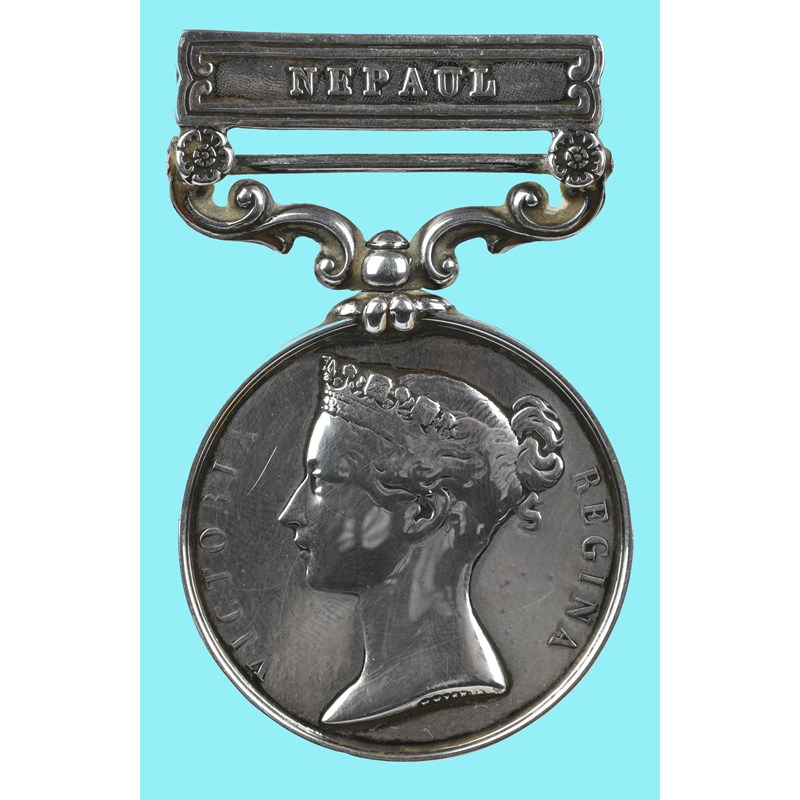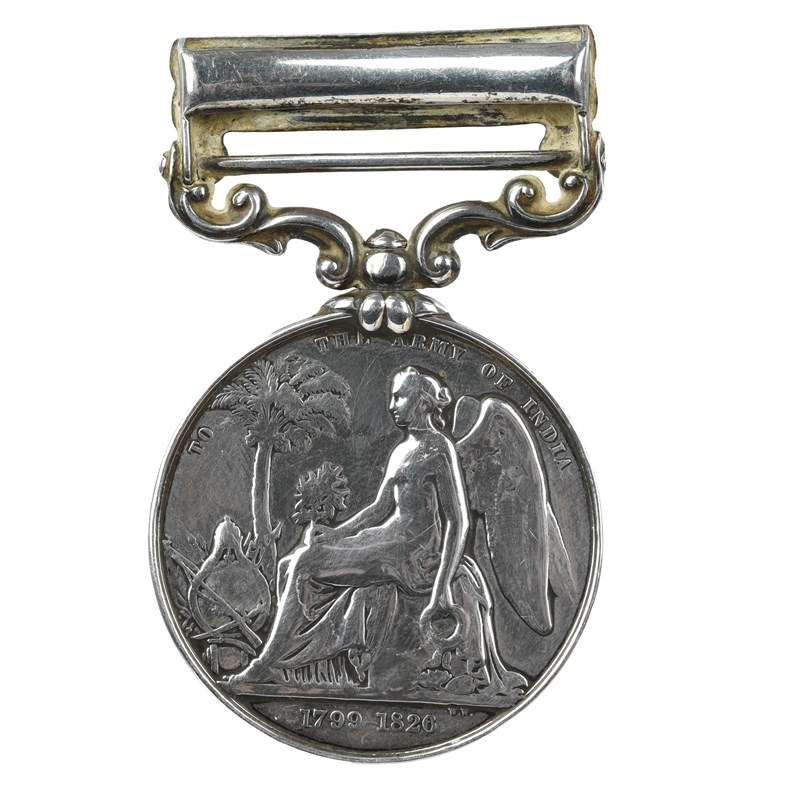Medals & Coins, Arms & Armour - 28 Nov 2023
The Army of India Medal 1799-1826 to Lieutenant (later Brigadier General) Thomas Palmer, 2nd
The Army of India Medal 1799-1826 to Lieutenant (later Brigadier General) Thomas Palmer, 2nd Battalion 19th Native Infantry, short hyphen reverse, clasp: Nepaul (LIEUT. THOS. PALMER. 2ND BN 19TH N.I.), engraved in serif capitals, much polished, fine or better.
(35mm diameter)
Thomas Palmer was born c. 1788, the son of William Palmer, Commissioner of the Navy and Director of the Greenwich Hospital. He entered the service of the East India Company c. 1804, and participated in the expedition of 1810 against the French in Mauritius (Isle de France). He then served as a Lieutenant with the19th Bengal Native Infantry in the Anglo-Nepalese war of 1814-16 (medal and clasp).
When in 1839 the Company embarked on its expedition to restore the deposed Shah Shujah al Moolk as ruler of Afghanistan Palmer was a Lieutenant Colonel with the 27th Bengal Native Infantry, stationed in Ferozepur as part of Major General Duncan’s reserve force. His regiment subsequently became part of the army of occupation in Afghanistan and was employed as the garrison of the strategic fortress town of Ghazni. Among Palmer’s subordinate officers was Ensign John Nicholson, later famous for his role in the Storming of Deli in 1857. When the uprising against the British occurred in 1841, the garrison, under Palmer’s command, endured a siege in the bitter cold of the winter of 1841/42 before lack of supplies compelled their surrender on the 6th March 1842. Lt. Col. Palmer was made a prisoner by the Afghans, suffering brutal treatment in captivity before his release on the 21st September of the same year. One of his captors, a member of the Barakzai clan named as Khan Mohammed Khan, demanded that Powell produce an impossibly large sum of money; and the Colonel, having no means of complying was put to 'the torture of the wedge'. Tent pegs, rope and wedges driven in by a mallet were used to apply crushing pressure to his foot in a variation on the medieval brodequin. He was also kicked and beaten.
Thomas Palmer subsequently commanded at Delhi as a Brigadier, and also held the position of Commander of the Sirkand Division, and Commander of the Cawnpore Division, in which capacity he died in late 1854 at the age of 66, after 51 years in Indian service.


